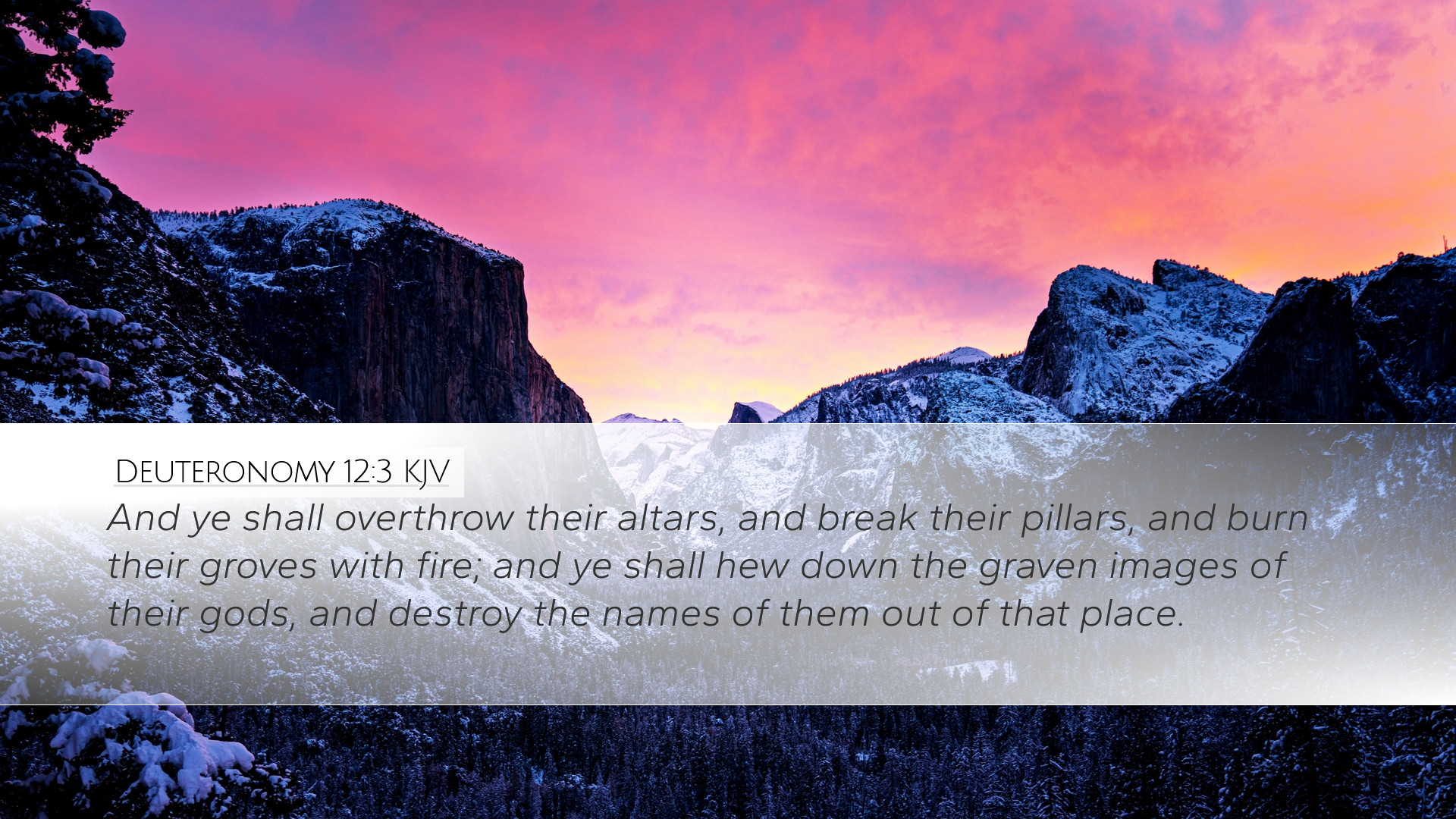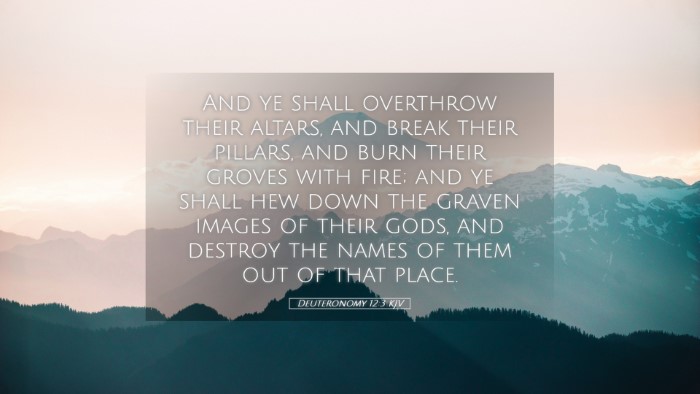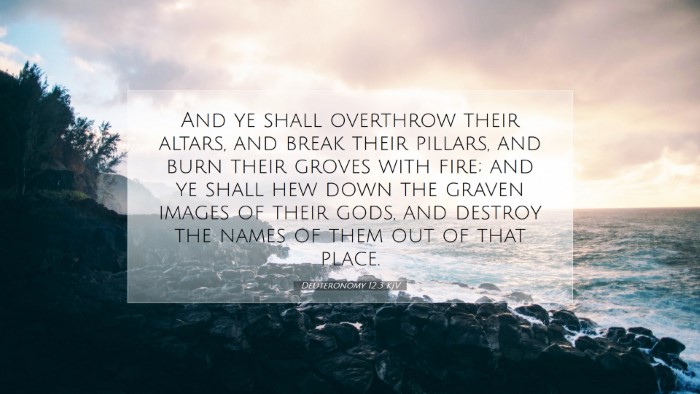Commentary on Deuteronomy 12:3
Deuteronomy 12:3 states:
"And ye shall overthrow their altars, and break their pillars, and burn their groves with fire; and ye shall hew down the graven images of their gods, and destroy the names of them out of that place."
This verse is part of Moses' instructions to the Israelites as they prepare to enter the Promised Land. It provides profound insights into the call for purity in worship and the eradication of idolatry.
Historical Context
In the context of the Israelites, entering Canaan meant encountering a land filled with pagan practices and altars dedicated to false gods. Moses, serving as the intermediary voice of God, emphasizes the need for a complete spiritual cleansing of the land.
Key Themes and Insights
- The Call for Purity:
Moses articulates a clear mandate: the removal of all forms of idolatry. This mandate extends beyond mere physical destruction into a spiritual declaration of fidelity to the one true God.
- Destruction of Idolatry:
Commentators like Matthew Henry stress that the act of overthrowing altars and images signifies a hardcore repudiation of anything that stands in opposition to Yahweh.
- Cultural Separation:
Albert Barnes notes that the Israelites are to separate themselves from the practices of the Canaanites, highlighting a significant cultural and theological division between the worship of Yahweh and paganism.
- Divine Ownership:
Adam Clarke emphasizes that by destroying these foreign symbols, the Israelites acknowledge God's sovereignty over their new homeland, affirming that it belongs to Him and not to the idols of the surrounding nations.
Commentary Highlights
Matthew Henry
Henry discusses the spiritual implications of this verse, linking it to the broader spiritual warfare where believers must confront and dismantle the strongholds of idolatry in their own lives. He posits that physical actions have spiritual roots, advocating a lifestyle that is distinctly set apart for God.
Albert Barnes
Barnes elucidates on the language used in this passage. The term "overthrow" highlights a vigorous effort, implying the necessity for proactive engagement in faith. He emphasizes that this commanded destruction is not arbitrary but a requirement of a covenant relationship with God.
Adam Clarke
Clarke interprets the act of burning and hewing down as symbolic of a deeper commitment to live according to God's laws. He also draws attention to the phrase "destroy the names," discussing how names often represented the identity and the attributes of the gods, emphasizing that erasing their identities signifies a rejection of their influence.
Theological Implications
This verse invites pastors and theologians to explore the weighty implications of idolatry in contemporary society. The challenge remains for today's church to identify and dismantle modern idols—anything that distracts from true worship of God. This requires discernment, dedication, and a strong resolve.
Practical Application for Today’s Believers
The call in Deuteronomy 12:3 is not limited to the Israelites of the Old Testament. It beckons a thorough introspection among modern believers. Here are some practical applications:
- Self-Examination:
Encourage personal reflection to identify any modern-day altars or idols—be they material possessions, cultural practices, or even relationships. Believers are called to evaluate what holds precedence over their commitment to God.
- Community Engagement:
The communal aspect of worship demands that churches collectively discern any cultural idols that may be present within the church community and address them transparently.
- Promotion of True Worship:
Leaders should uplift the significance of sincere worship, free from distracting elements or influences, thereby creating an environment that fosters pure devotion to God.
- Education on Idolatry:
Organizing bible studies and discussions on the nature of idolatry—both historical and contemporary—can empower congregations to recognize and confront these issues.
Conclusion
In summary, Deuteronomy 12:3 serves as a vital reminder for believers to engage in spiritual diligence against the idols that threaten their faith. By reflecting on the insights from respected commentators, pastors, students, and scholars will discover that the call to purity, obedience, and true worship remains as relevant today as it was during the times of Moses. The underlying challenge remains: to reject any form of idolatry and embrace a life wholly dedicated to the service of God.


